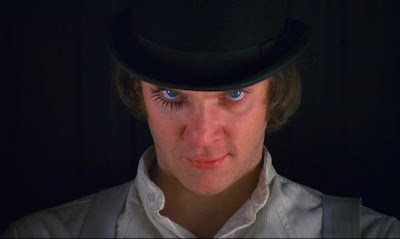
This is maibe the most important movie of the 80's. It made an after and before in the genre of Adolesent Movies. Surely the best example of the genre. Here goes some extra information:
The Breakfast Club is a 1985 American teen film widely considered as the definitive work in the genre. Written and directed by John Hughes, the storyline follows five teenagers (each representing a different clique in high school) as they spend a Saturday in detention together and come to realize that they are all deeper than their respective stereotypes. The film has become a cult classic and has had a tremendous influence on many coming-of-age films since then. The film was shot entirely in sequence. Shooting began on March 28, 1984 and ended in May of 1984.
And the plot:
Plot
The plot follows five students at fictional Shermer High School in the widely used John Hughes setting of Shermer, Illinois (a fictitious suburb of Chicago based on Hughes' hometown of Northbrook, Illinois, Shermer is a street in Northbrook, and the school in Northbrook, Glenbrook North High School is on Shermer), as they report for Saturday detention on March 24, 1984. Complete strangers, the five teenagers are all from a different clique or social group:
Name Actor (Age) Label Reason for Detention
Claire Standish Molly Ringwald (16) The Princess: a wealthy, popular and spoiled girl Skipping school to go shopping at a mall
Andrew Clark Emilio Estevez (21) The Athlete: a varsity wrestler Taping a fellow student's (Larry Lester's) buttocks together
Brian Johnson Anthony Michael Hall (17) The Brain: a nerd Bringing a flare gun to school (in a parasuicidal gesture) that accidentally discharged in his locker, causing minor property damage
John Bender Judd Nelson (24) The Criminal: a troublemaker who continually causes problems at school Pulling the fire alarm. It is implied that Bender is often in detention
Allison Reynolds Ally Sheedy (21) The Basket case: a misfit, kleptomaniac, and self-described "compulsive liar" Nothing better to do (according to her)
The students pass the hours in a variety of ways: they dance, harass each other, tell stories, fight, smoke marijuana, and speak on a variety of subjects. Gradually they open up to each other and reveal their inner secrets (for example, Allison is a kleptomaniac and a compulsive liar and Brian and Claire are ashamed of their virginity). They also discover that they all have strained relationships with their parents and are afraid of making the same mistakes as the adults around them. However, despite these developing friendships, the students are afraid that once the detention is over, they will return to their very different cliques and never speak to each other again.
At the request and consensus of the students, Brian is asked to write the essay Mr. Vernon assigned earlier (the subject of which was to be a synopsis by each student detailing "who you think you are"), which challenges Mr. Vernon and his preconceived judgments about all of them. Brian does so, but instead of writing about the actual topic he writes a very motivating letter that is in essence, the main point of the story. He signs the essay as "The Breakfast Club" and leaves it at the table for Mr. Vernon to read when they leave. There are two versions of this letter, one read at the beginning and one at the end, and they are slightly different; illustrating the change in the student's judgments of one another, and their realization that they truly have things in common.
The beginning letter is as follows:
Brian Johnson (although that is unknown at this point): Saturday, March 24, 1984. Shermer High School, Shermer, Illinois. 60062.
Dear Mr. Vernon, we accept the fact that we had to sacrifice a whole Saturday in detention for whatever it was that we did wrong. What we did WAS wrong. But we think you're crazy to make us write this essay telling you who we think we are. What do you care? You see us as you want to see us... in the simplest terms and the most convenient definitions. You see us as a brain, an athlete, a basket case, a princess and a criminal. Correct? That's the way we saw each other at seven o'clock this morning. We were brainwashed.
The end letter is as follows:
Brian Johnson: Dear Mr. Vernon, we accept the fact that we had to sacrifice a whole Saturday in detention for whatever it was we did wrong, but we think you're crazy to make us write an essay telling you who we think we are. You see us as you want to see us... In the simplest terms and the most convenient definitions. But what we found out is that each one of us is a brain...
Andrew Clark: ...and an athlete...
Allison Reynolds: ...and a basket case...
Claire Standish: ...a princess...
John Bender: ...and a criminal...
Brian Johnson: Does that answer your question?... Sincerely yours, the Breakfast Club.
The letter is the focal point of the film, as it demonstrates and illustrates the changes the students went through during the course of the day; their attitudes and perspectives have changed and are now completely different. The movie ends as the characters leave detention.





